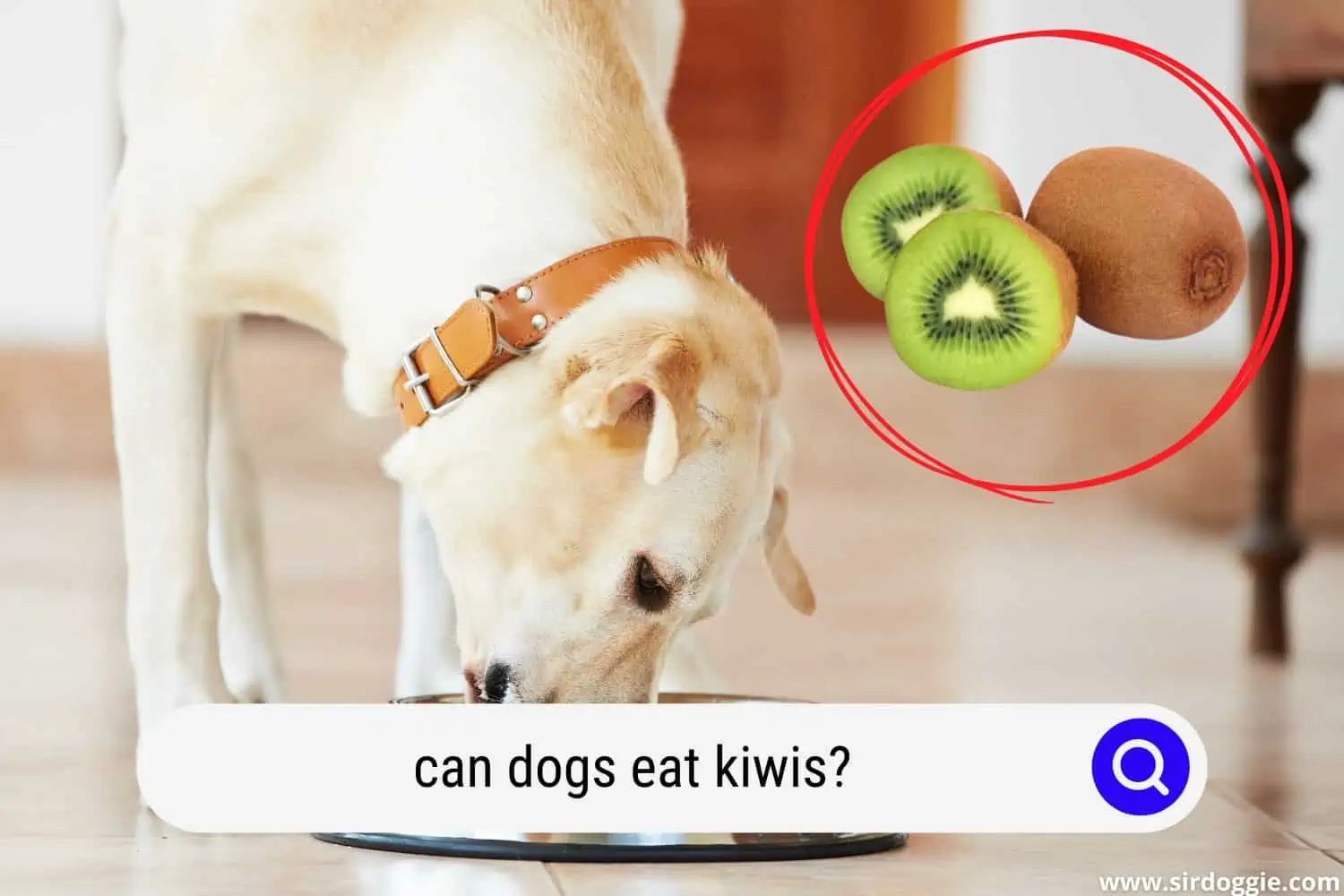Can Dogs Have Kiwis? Discover The 4 Great Canine-Safe Fruits and Why Kiwi Rocks
We all heard that fruits and veggies are the main building blocks of good health. They are packed with vitamins, fiber, protein, and potassium that give us the energy to keep moving. Some fruits are much more nutritious than others. And if we take a closer look at kiwi, we will see that it is one of the most nutritious snacks to have. Now, what about dogs? Can dogs have kiwis? Practically any pet owner wants to share whatever he/she eats with a beloved pooch companion.
However, don’t be quick to make any assumptions about what you can and cannot give your mutt. Let’s take a look at a kiwi and see if dogs can safely enjoy it just like humans can. But before we get specifically into the kiwi subject, we can discuss what fruits are safe for pooches to enjoy in general.

Can Dogs Have Fruits?
In short, the answer is yes, but not all of them! Some of the healthy sweet snacks that are right for the two-legged might be toxic to our canine companions.
Safe Fruits:
- Apples: one of the safest and tastiest fruits to give to your furry pal. Abundant in vitamin C, potassium, and fiber, apples can become a healthy snack any time of day. Delicious raw, baked, or dried, your pal will be very appreciative of you sharing some of the crunchy goodness.
- Bananas: this sun-colored fruit is very high in potassium, but also loaded with natural sugars, therefore should be given in moderation. Dogs don’t necessarily require that much potassium bananas, but they just love its sweet, tangy taste. Just ask my dog, Ariel, and she will bark firm!
- Watermelons: it is a great fruit that dogs can indulge in safely. Eating it will come in especially handy during the hot days of summer as it contains a lot of water. Like the other types we’ve discussed above, watermelon is also full of nutrients our four-legged friends can benefit from. And, as in the case with its fruity counterparts, it has to be administered in moderation.
- Kiwis: not only do these have more vitamin C than an apple and an orange combined, but also a lot more potassium than a banana! Talking about superfruit powers! You can give your pooch sliced kiwi with its meal and you will be showered with grateful wet kisses later.
Toxic Fruits:
- Grapes: a total no-no for our fluffy pals! Please, be careful when you indulge in this sweet juicy “berry” (botanically, it is, actually) as it can easily come off the stem and hit the floor for your mutt’s delight. These can interfere with kidney function and if a dog eats too many, it can lead to kidney failure. Intoxication symptoms can include whining, excessive drinking, vomiting, diarrhea, and even seizures.
- Raisins: these are dried grapes that humans love to add to their cereals, porridges, yogurts, and cottage cheeses. Even though they are dried, and an owner might think that raisins might be a safer option than raw grapes, it is not. Be careful when you sprinkle some in your morning meal so as not to drop a few and let your pooch enjoy. One may not cause an adverse reaction. Yet, if a fluffy pal gets its fangs on a lot more, then you are asking for trouble.
- Citrus Fruits: surprising as it may be, fruits like lemons, tangerines, and oranges may not be the safest snack option for your furry companion. While they are abundant in vitamin C, which helps shield one’s body from free radicals, the acid in the citrus fruits can seriously upset a pup’s tummy. And dogs’ stomachs are a lot more sensitive than human ones. You might be much better off giving your hound kiwis instead of any of the citrus snacks. But what exactly is kiwi, and what is its origin?
Related Reading: Can Dogs Eat Dates Safely?
What Is A Kiwi?
Or else called the “Chinese Gooseberry,” this exotic fruit became one of the favorite fruit staples on many people’s tables. Originating in China and Taiwan, it is also grown in California, so many native Californians can enjoy these year-round. It has a pleasantly sweet, but a little “acidic” taste. Not as bad as the orange one though. As already previously mentioned, kiwis have more vitamin C than their citrus counterparts. Therefore, if a pooch is allergic to oranges, you can try feeding it a slice or two of this little green superfruit.
Can Dogs Have Kiwis?
Generally yes, kiwis won’t cause an allergic outbreak as long as your dog has no fruit or berry allergies. They are abundant in vitamins C, K, and E, and fiber to help a canine pal with occasional constipation episodes. Kiwis are great at promoting eye health, iron absorption as well as better sleep! Hence, if you are a “lucky” pet parent of a hyperactive fur baby, include some of the green superfruits in its diet. It might work wonders! They are an excellent healthy snack for those who have any type of heart issues and for those who don’t but want to keep it that way.

Curl-Up
Can dogs have kiwis? As we have just discussed, this wonderful superpower snack can benefit any canine in so many ways. From being abundant in many essential elements necessary for healthy development and overall wellness, you cannot go wrong as an owner in occasionally administering a few pieces of juicy and aromatic fruit. Just remember: don’t overdo it! Kiwis cannot substitute the main meal or treat that a pooch loves. And always start one piece at a time to play it safe. Especially if a pet is known to have allergies, as in the case of Pugs, for instance.
Related Reading: Can Pugs Eat Salmon?
FAQs
Can dogs eat kiwi?
Yes, they can! The thing is that it has to be introduced slowly, one piece at a time in case your hound is known to be allergic to other types of fruits.
Can dogs have kiwi fruit?
Dogs can have some fruits that humans indulge in. Kiwis are considered a generally safe food option unless you have a pooch who is prone to allergies.
Is kiwi safe for dogs?
Generally yes, but mutts have to be fed kiwi without the outer skin and it has to be cut into small pieces. Eating the kiwi peel can cause obstructions in the intestines

Family Dog Expert Author
Hi there! I’m Stuart, a devoted dog lover and family dog expert with over a decade of experience working with our furry companions. My passion for dogs drives me to share my knowledge and expertise, helping families build strong, loving bonds with their four-legged friends. When I’m not writing for SirDoggie, you’ll find me hiking, playing with my beautiful dog, or studying music.